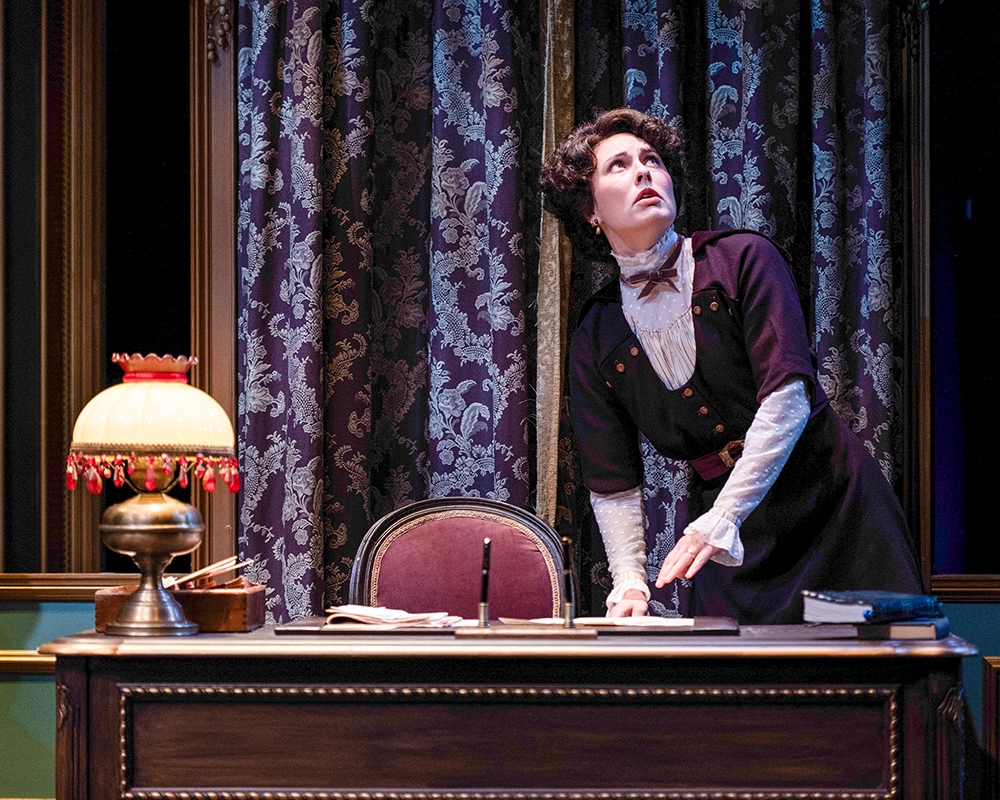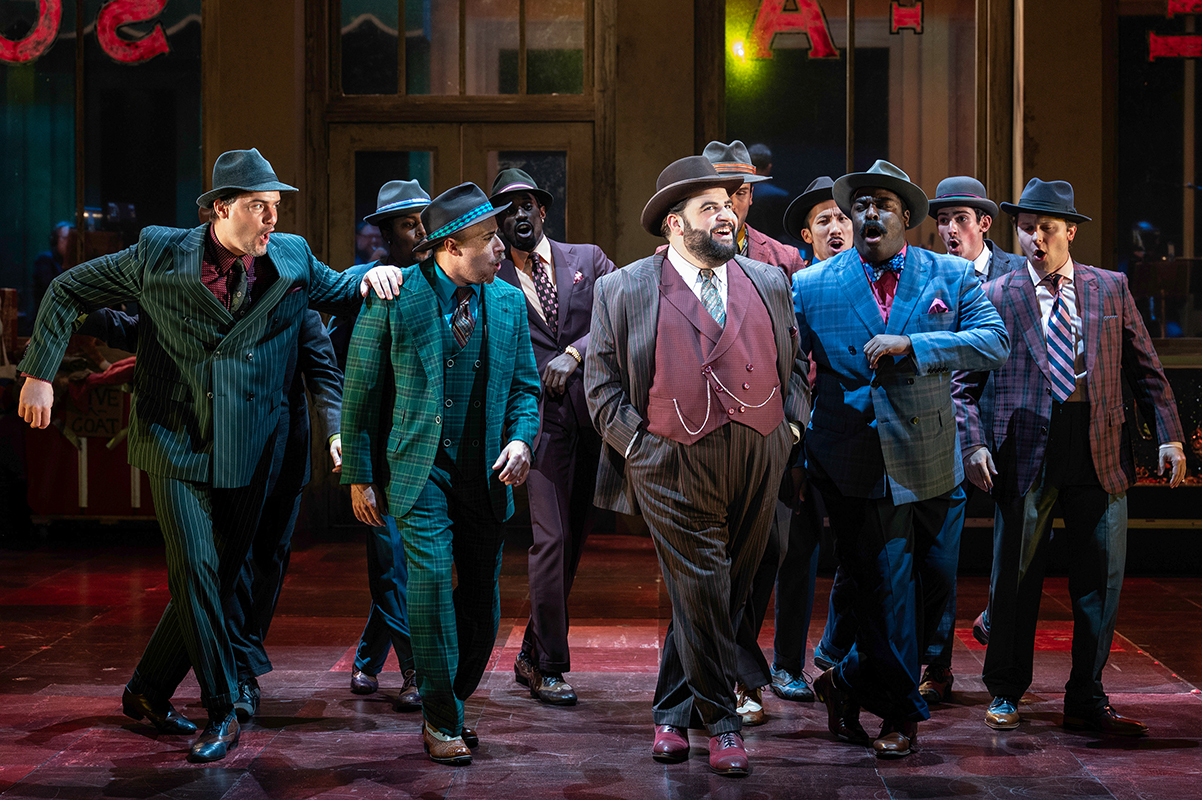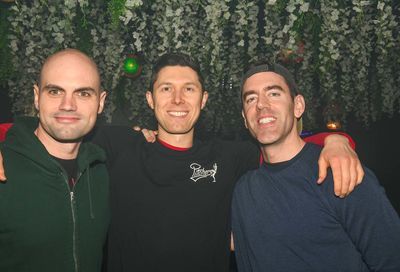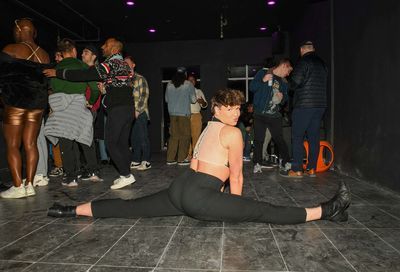‘A Complete Unknown’: Can a Biopic Capture Dylan’s Contradictions?
Timothée Chalamet stars as Bob Dylan in "A Complete Unknown," a biopic that struggles to make the folk legend knowable.
By Zach Schonfeld on December 23, 2024

During the first act of A Complete Unknown, the splashy new biopic about Bob Dylan, the songwriter gets into a fight with his girlfriend, Sylvie Russo, a character based on the real-life Suze Rotolo. Sylvie (Elle Fanning) is frustrated that her evasive new beau (Timothée Chalamet) keeps his backstory a secret.
“You never talk about your family, your past!” Sylvie protests, calling him “a mysterious minstrel.” Dylan retorts, “People make up their past, Sylvie! They remember what they want, they forget the rest.”
Sylvie’s critique reverberated through my head as A Complete Unknown marched towards its preordained climax, ticking off a grab-bag of nostalgic Boomer pleasure centers along the way. Despite the impressive efforts of Chalamet, filmmaker James Mangold, screenwriter Jay Cocks, and a fine supporting cast, Dylan remains an enigma, as unknowable to the audience as he is to his lover.
It’s all there in the title, with its myriad meanings — a playful wink to “Like a Rolling Stone,” a reference to the songwriter’s roots as a folkie nobody from Minnesota, but also, perhaps, a commentary on this icon’s fundamental unknowability. Complete unknown, indeed.
How do you make a movie about a guy who’s a tangle of contradictions, more myth than man? In 2007, Todd Haynes answered this question with I’m Not There, a kind of biopic as collage, as fragmented as the man himself. That film was easier to admire than love for its subversion of biopic tropes, and it bombed at the box office. Its overarching message — you can’t make a normal biopic about this guy! — proved incompatible with the Normal Biopic Industrial Complex.
Inevitably, Hollywood decided Dylan was ripe for a more conventional treatment, and they found the guy for the job in Mangold, who, two decades ago, helped inaugurate Hollywood’s unending glut of music biopics with Walk the Line, a deserved classic of the genre.
Wisely, A Complete Unknown resists the sprawling career-spanning arc — Chalamet is hardly primed to play ’80s born-again Dylan — and zooms in on a pivotal period from 1961, when a teenage Dylan first arrived in New York, to 1965, when he shocked the folk establishment by going electric.
During the opening sequence, the young folkie hitchhikes to New Jersey to visit his ailing idol, Woody Guthrie (Scoot McNairy). There, he befriends folksinger/activist Pete Seeger (Edward Norton), who takes the young talent under his wing, becoming a mentor as Dylan navigates the Greenwich Village folk scene.
If anyone deserves Oscar buzz here, it’s Norton, who embodies Seeger with a kind of paternal, benevolent gravity that curdles into stodgy traditionalism during the third act, as Dylan breaks with the establishment. If the character’s involvement in Dylan’s early career is overstated a bit, it instills the film with a compelling changing-of-the-guard arc.

Dylan makes a name for himself performing at downtown clubs like the Gaslight, where he catches the attention of both Joan Baez (Monica Barbaro), who becomes his collaborator and tumultuous lover, and Albert Grossman (Dan Fogler), his tough-minded manager. Fame comes quickly, earning him the right to record his original tunes but compromising his privacy, and we get the obligatory sequences of Dylan mobbed by female fans in a cab outside his apartment and squabbling with Baez onstage during a fraught tour.
Mangold is a skilled, inventive director, and he captures the ’60s milieu with stunning visual flourishes. A vibe shift arrives as 1964 turns into 1965; a sense of revolution suffuses the air, and there’s a remarkable sequence of Dylan, shades on, roaming the Village, nabbing a siren whistle (as heard in “Highway 61 Revisited”) from a streetseller, and then speeding away on his motorcycle, as throbbing jazz cacophony fills the air.
Mangold frequently frames the singer at a remove from his contemporaries — a long shot of Dylan onstage at Newport with Baez emphasizes a microphone between their faces, symbolizing the vast gulf separating them.
Chalamet performs a plethora of Dylan tunes throughout the film — he spent years training with dialect and harmonica coaches, and his vocals are all done live, apparently, with vintage microphones and solid simulacrums of Dylan’s wheezy voice.
As in Walk the Line, Mangold has a knack for staging mini psychosexual dramas within the the songs themselves. As Dylan sounds out “Blowin’ in the Wind” in Baez’s apartment, for instance, her irritation with this arrogant wunderkind melts, and she impulsively starts singing along on harmony.
And yet, A Complete Unknown can’t quite figure out who Dylan was or what made him tick. Where did those songs come from? A sequence of the man viewing newsreel footage of the Cuban Missile Crisis, then writing “Masters of War” offers a facile narrative.
Chalamet delivers disaffected Dylanisms like “They should just shut the fuck up and let me be” in a distractingly nasal-pinched imitation of Dylan’s voice. He is never wholly convincing as Dylan. He looks too much like, well, Timothée Chalamet — too pretty, too delicate — and plays the character as a set of surly, brooding glances that fail to capture Dylan’s mischievous humor. The film suggests that Dylan’s essence lies in his defiant, iconoclastic attitude, but Mangold — a committed crowd-pleaser — can’t quite match that energy as a director.
As A Complete Unknown culminates in a remarkable recreation of Dylan’s electric set at the 1965 Newport Folk Festival, it’s hard for Mangold to resist glaring factual errors (an audience member shouts “Judas,” which actually occurred in England) or escape Walk the Line‘s shadow.
There are playful callbacks (in the 2005 film, Johnny Cash writes to a young folksinger named Bob Dylan; here, we see Dylan receiving Cash’s letter) and structural parallels. Both films depict the hero navigating a love triangle between a woman he lives with (Sylvie) and a more worldly woman with whom he performs (Baez), and both climax with a heady recreation of an iconic 1960s performance instilled with anti-establishment significance. (Cash even emerges as a supporting player during A Complete Unknown‘s third act, encouraging Dylan to break all the rules.)
And yet Chalamet lacks the presence and suspension of disbelief that Joaquin Phoenix summoned as Cash in Walk the Line. Chalamet is a generational talent in his own right, but here he looks like a model dressed in a Dylan Halloween costume. It’s a good Halloween costume — the kind that turns heads at parties and gets a lot of Instagram likes. But no one’s going to confuse it for the real thing.
A Complete Unknown (★★★☆☆) opens nationwide on Wednesday, Dec. 25. Visit www.fandango.com.
More from Metro Weekly:
In Clay: A Revelatory One-Woman Musical at Signature Theatre
Boasting catchy tunes and a brilliant performance by Alex Finke, Signature’s "In Clay" shapes a fascinating portrait of an overlooked artist.
By André Hereford on December 22, 2025 @here4andre
Not since Hedwig and the Angry Inch have I so enjoyed a one-person musical about an internationally ignored female artist overshadowed by her famous male partner as much as I enjoyed Rebecca Simmonds and Jack Miles' enchanting In Clay.
Making its American premiere at Signature Theatre, following sellout runs in London, the jazz-infused portrait of early-20th-century French ceramicist and painter Marie-Berthe Cazin doesn't have too much else in common with hard-rocking Hedwig. Except that both shows are powered by a knockout batch of songs, and the galvanizing force of a woman reclaiming her time, her art, and her story.
Deceived Review: A Gothic Gaslighting Thriller at Everyman
Everyman Theatre’s reworking of Gaslight centers female agency, delivering compelling atmosphere and intrigue.
By André Hereford on December 16, 2025 @here4andre
Is willowy Londoner Bella truly going mad, or is her enigmatic husband Jack carrying out a devious plot to convince her she's losing her mind? And if so, to what end? In modern terms, Bella is desperately pondering whether Jack is trying to gaslight her into thinking she's going insane.
The terminology and the plot of Johnna Wright and Patty Jamieson's Deceived, now at Everyman Theatre, derive from Patrick Hamilton's Victorian thriller Gas Light, which premiered in 1938, before being adapted into the Oscar-winning 1944 film Gaslight, starring Ingrid Bergman as distressed newlywed Paula.
Guys and Dolls at Shakespeare Theatre Company Is Showstopping
Francesca Zambello delivers lavish Golden Age spectacle, standout musical numbers, and big Broadway flair.
By Kate Wingfield on December 22, 2025
Putting aside the curious question of why the Shakespeare Theatre Company has taken to staging musical theater -- this season it's Guys and Dolls -- the happy news is that director Francesca Zambello doesn't need to keep her day job (although let's hope she does).
She may be the artistic director of the Washington National Opera, but she's clearly got the eye, ear, and vision for a whole different kind of crowd. This is no-holds-barred Golden Age rom-com song-and-dance magic brought fully to life with some serious spectacle. From scenic designer Walt Spangler's mind-blowing industrial shop space, with all its peeling paint and careworn shop décor, to a live orchestra conducted with complete and utter flair by James Lowe, it's something to behold.
Support Metro Weekly’s Journalism
These are challenging times for news organizations. And yet it’s crucial we stay active and provide vital resources and information to both our local readers and the world. So won’t you please take a moment and consider supporting Metro Weekly with a membership? For as little as $5 a month, you can help ensure Metro Weekly magazine and MetroWeekly.com remain free, viable resources as we provide the best, most diverse, culturally-resonant LGBTQ coverage in both the D.C. region and around the world. Memberships come with exclusive perks and discounts, your own personal digital delivery of each week’s magazine (and an archive), access to our Member's Lounge when it launches this fall, and exclusive members-only items like Metro Weekly Membership Mugs and Tote Bags! Check out all our membership levels here and please join us today!
The Magazine
-
Most Popular
 Burglary Suspect Arrested After Molesting, Urinating on Victim
Burglary Suspect Arrested After Molesting, Urinating on Victim  Gay Porn Star Austin Wolf Gets 19 Years for Child Sex Crimes
Gay Porn Star Austin Wolf Gets 19 Years for Child Sex Crimes  Adult Film Star Lane V Rogers, 31, Dies in Motorcycle Accident
Adult Film Star Lane V Rogers, 31, Dies in Motorcycle Accident  Heated Rivalry Outpaces NHL Stars in Online Searches
Heated Rivalry Outpaces NHL Stars in Online Searches  The Housemaid: Sydney Sweeney Can’t Save This Thin Thriller
The Housemaid: Sydney Sweeney Can’t Save This Thin Thriller  Three LGBTQ Players On U.S. Women’s Olympic Hockey Team
Three LGBTQ Players On U.S. Women’s Olympic Hockey Team  Stranger Things Creators Address Coming-Out Backlash
Stranger Things Creators Address Coming-Out Backlash  ICE Agent Fatally Shoots Queer Woman in Minneapolis
ICE Agent Fatally Shoots Queer Woman in Minneapolis  Netflix’s Stranger Things Sparks Anger Over Will’s Coming Out
Netflix’s Stranger Things Sparks Anger Over Will’s Coming Out  "MAGA Invasion" To Collide With "Mini Gay Days" at Disneyland
"MAGA Invasion" To Collide With "Mini Gay Days" at Disneyland
 ICE Agent Fatally Shoots Queer Woman in Minneapolis
ICE Agent Fatally Shoots Queer Woman in Minneapolis  Heated Rivalry Outpaces NHL Stars in Online Searches
Heated Rivalry Outpaces NHL Stars in Online Searches  Trump Says Democrats Will Impeach Him if They Retake Congress
Trump Says Democrats Will Impeach Him if They Retake Congress  Salt Lake City Council Reaches Historic LGBTQ Majority
Salt Lake City Council Reaches Historic LGBTQ Majority  Stranger Things Creators Address Coming-Out Backlash
Stranger Things Creators Address Coming-Out Backlash  Three LGBTQ Players On U.S. Women’s Olympic Hockey Team
Three LGBTQ Players On U.S. Women’s Olympic Hockey Team  Burglary Suspect Arrested After Molesting, Urinating on Victim
Burglary Suspect Arrested After Molesting, Urinating on Victim  10 Guilty of Cyberbullying Brigitte Macron Over Trans Rumors
10 Guilty of Cyberbullying Brigitte Macron Over Trans Rumors  Marty Supreme Runs on Timothée Chalamet’s Pure Mania
Marty Supreme Runs on Timothée Chalamet’s Pure Mania  Marjorie Prime Outmatches Chess on Broadway
Marjorie Prime Outmatches Chess on Broadway
Scene
Metro Weekly
Washington's LGBTQ Magazine
P.O. Box 11559
Washington, DC 20008 (202) 527-9624
About Us pageFollow Us:
· Facebook
· Twitter
· Flipboard
· YouTube
· Instagram
· RSS News | RSS SceneArchives
Copyright ©2025 Jansi LLC.














You must be logged in to post a comment.